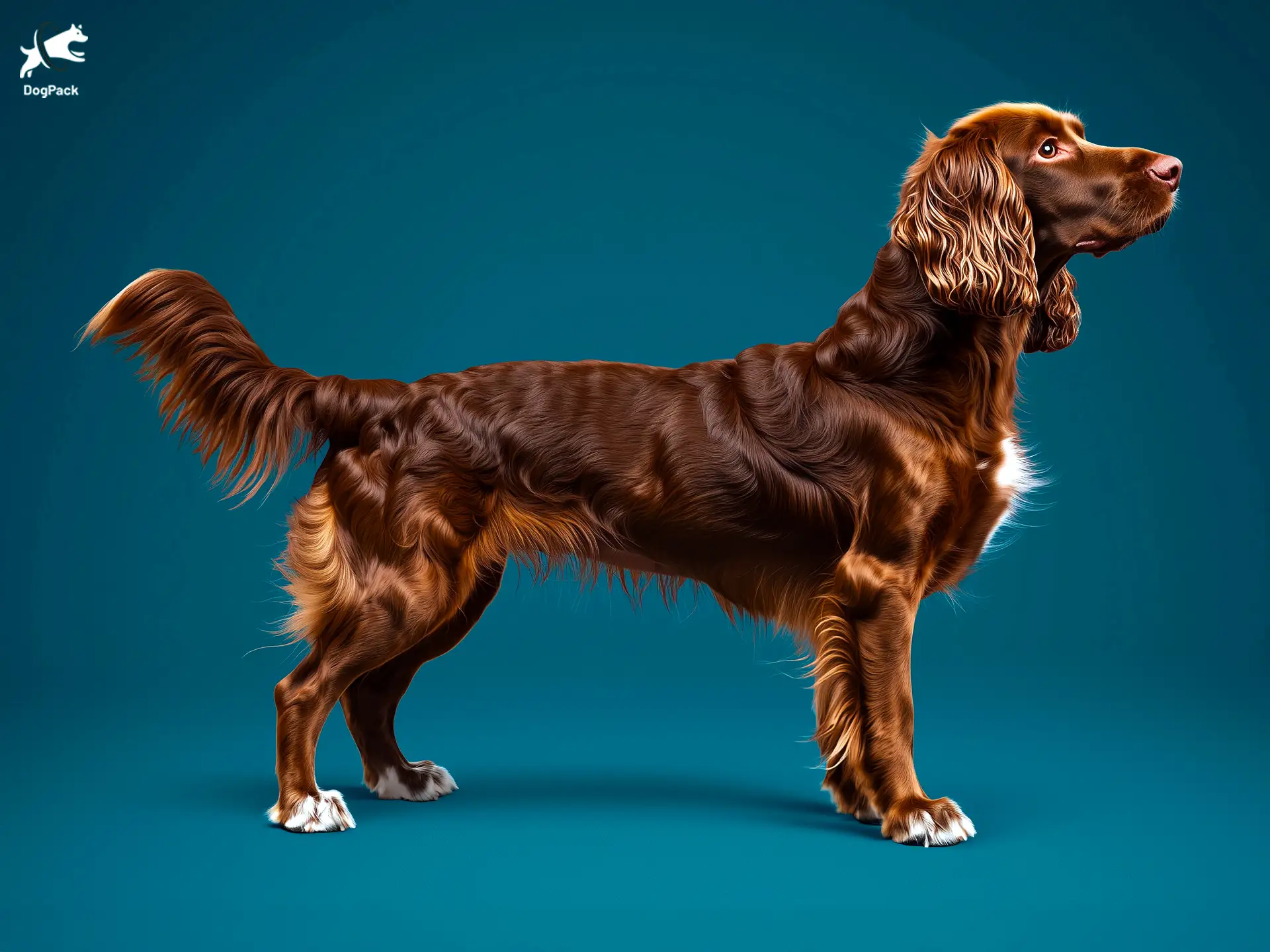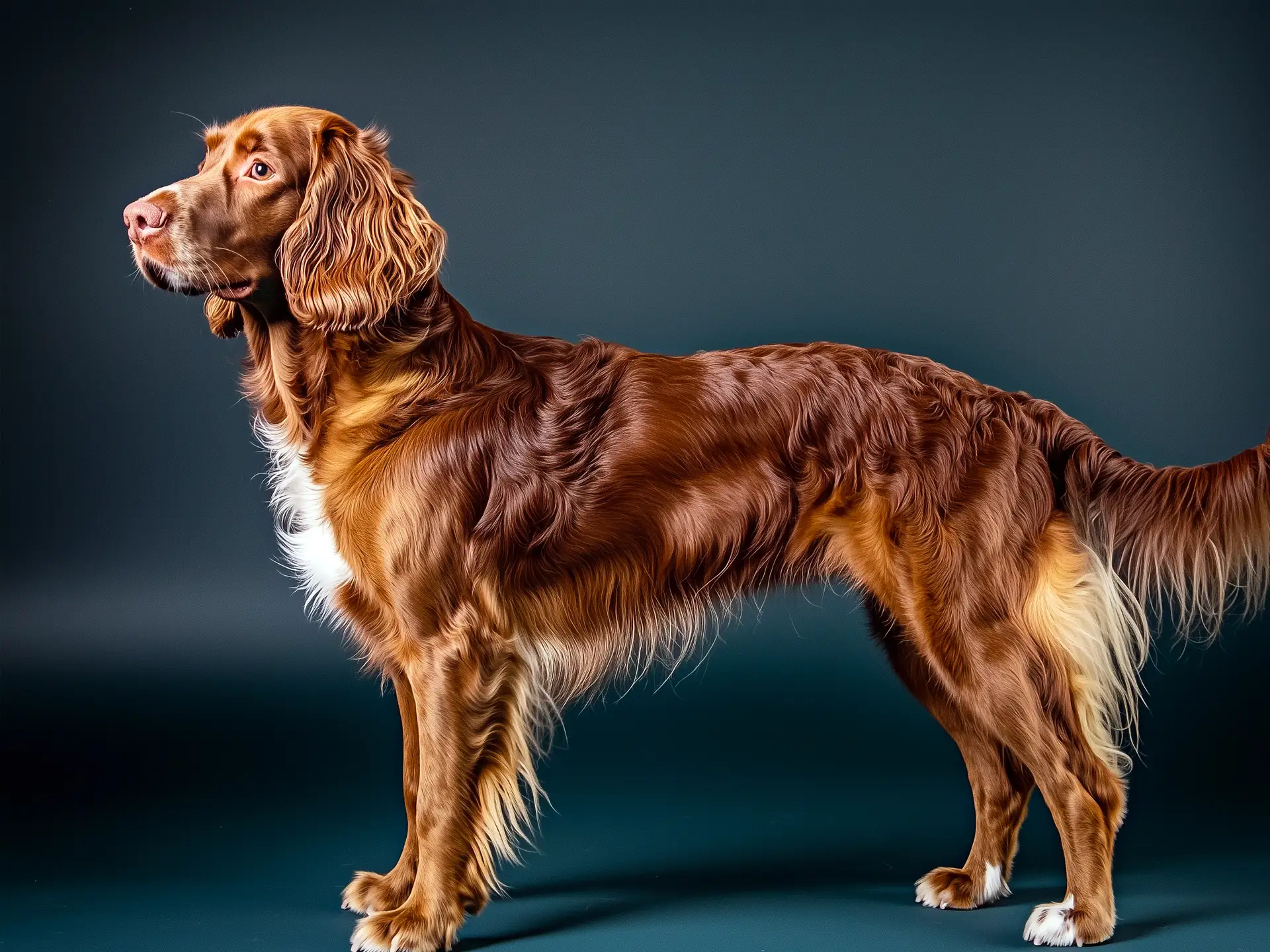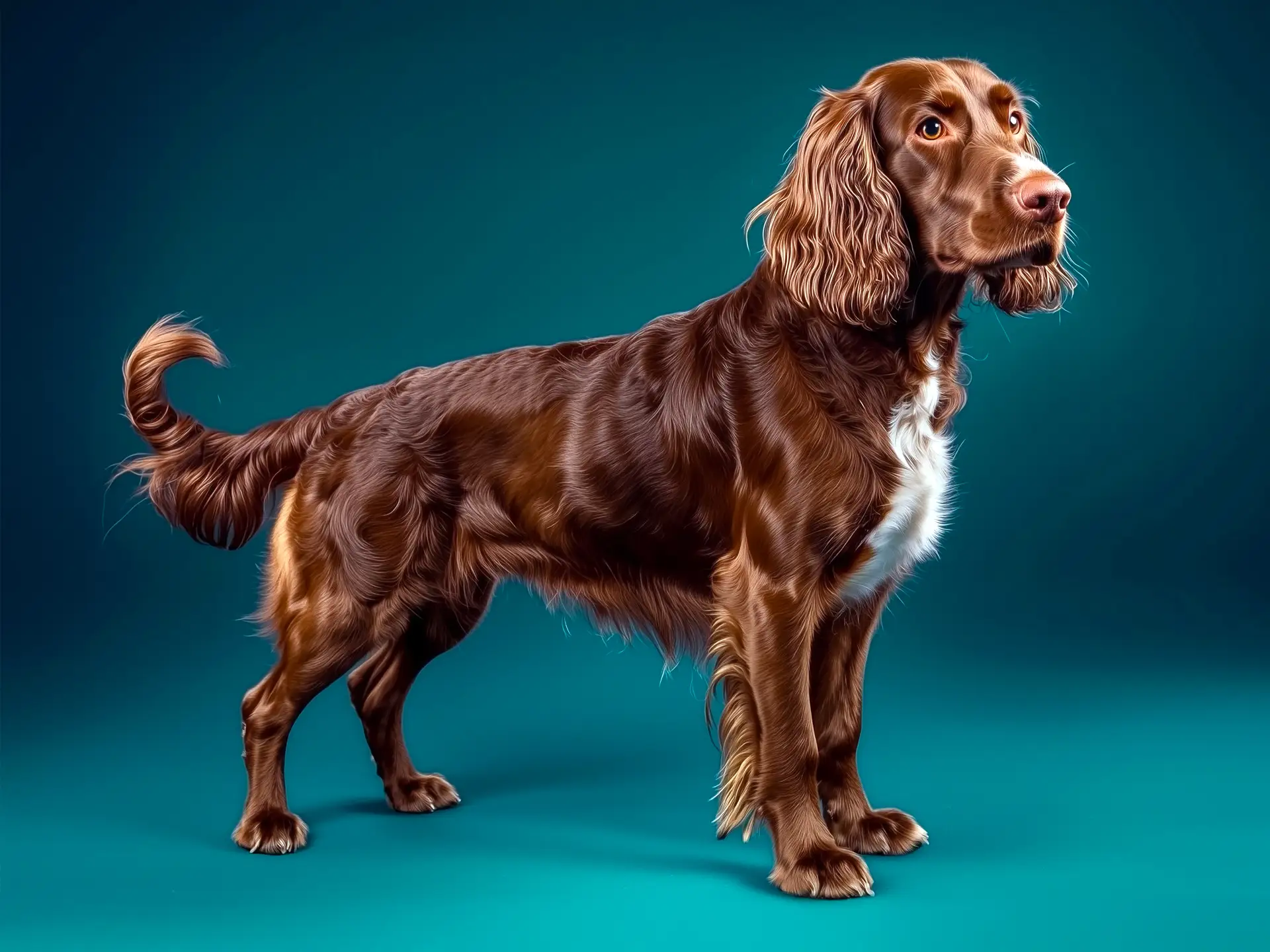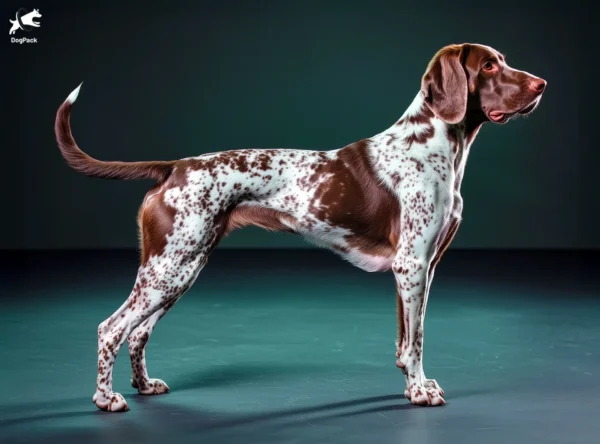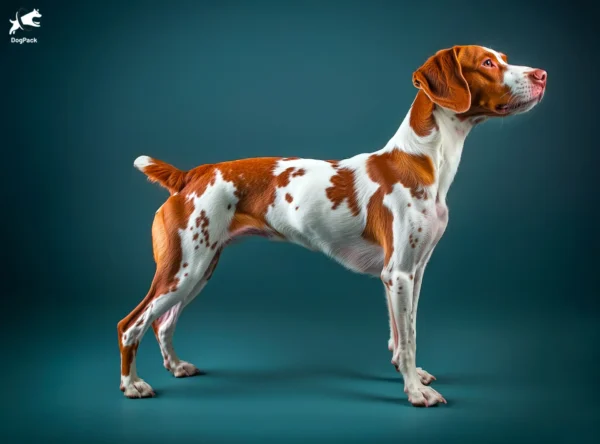Deutscher Wachtelhund Dog Breed Info & Overview
The Deutscher Wachtelhund, or German Spaniel, is a rare and versatile hunting breed from Germany, celebrated for its excellent tracking abilities and loyalty. Medium-sized with a friendly and energetic disposition, this breed is a true asset for hunters and a devoted family companion. The Deutscher Wachtelhund combines skill, spirit, and affection, making it a unique choice for those who value both performance and companionship.
Characteristics
Pictures
Breed History
The Deutscher Wachtelhund traces its roots back to the early 20th century in Germany. Developed primarily for versatile hunting, this breed was crafted by crossing various German Spaniels and Stöberhunds to produce a dog proficient in tracking, flushing, and retrieving game. The name “Wachtelhund” translates to “quail dog,” highlighting its specialization in bird hunting.
During its development, breeders focused on preserving the dog’s strong scenting abilities and endurance, making it an invaluable asset to hunters. The Deutscher Wachtelhund quickly gained a reputation for its reliability in dense forests and challenging terrains, where other breeds might falter. Its keen nose and determination set it apart from other hunting dogs of the time.
Although widely popular among German hunters, the Deutscher Wachtelhund remains relatively rare outside its homeland. Efforts to maintain the breed’s purity and hunting prowess have limited its spread to other countries. Today, it continues to be cherished by enthusiasts who value its historical significance and exceptional hunting skills.
Temperament, Personality
The Deutscher Wachtelhund is known for its lively and friendly demeanor. Highly intelligent and eager to please, this breed forms strong bonds with its family members. Its affectionate nature makes it a joy to have around, especially for those who can match its enthusiasm and energy levels.
Socialization is key for the Deutscher Wachtelhund, as its strong hunting instincts may lead it to be wary of strangers or smaller animals. Early exposure to different environments, people, and pets can help channel its natural instincts positively. This breed thrives on interaction and enjoys being part of family activities.
While the Deutscher Wachtelhund is generally good with children, its energetic nature means it might be better suited for families with older kids. Its playful spirit and endurance make it an excellent companion for outdoor adventures. However, it may not be the best fit for homes with small pets due to its prey drive.
Physical Characteristics
The Deutscher Wachtelhund is a medium-sized dog with a sturdy and muscular build. Males typically stand between 18 to 21 inches (46–53 cm) tall, while females are slightly smaller. Weighing between 44 to 66 pounds (20–30 kg), this breed is well-proportioned and built for endurance and agility in the field.
One of the breed’s most distinctive features is its wavy or curly coat, which provides protection against harsh weather conditions. The coat colors range from solid brown to brown roan, often with white markings on the chest and toes. The dense fur not only offers insulation but also helps the Deutscher Wachtelhund navigate through thick brush and undergrowth.
The breed has a noble head with expressive eyes that reflect its intelligence and alertness. Long, pendulous ears frame its face, enhancing its keen sense of hearing. The tail is typically docked in countries where the practice is legal, but when left natural, it is feathered and carried horizontally, adding to its graceful appearance.
Health Issues
The Deutscher Wachtelhund is generally a healthy breed with a robust constitution. However, like all breeds, it is prone to certain hereditary health issues. Hip dysplasia is a concern, given the breed’s active nature and physical demands, so regular screenings are recommended for breeding stock.
Eye conditions such as progressive retinal atrophy (PRA) can occur in the Deutscher Wachtelhund. Responsible breeders conduct genetic testing to minimize the risk of passing on such conditions. Regular veterinary check-ups are essential to monitor and maintain the dog’s eye health over its lifetime.
Ear infections may also be a concern due to the breed’s long, floppy ears, which can trap moisture and debris. Regular ear cleaning and inspections can prevent infections and discomfort. Overall, providing a balanced diet, adequate exercise, and routine veterinary care will help ensure the Deutscher Wachtelhund leads a healthy life.
Grooming Needs
The Deutscher Wachtelhund’s wavy coat requires moderate grooming to keep it in top condition. Weekly brushing helps remove loose hair and prevent matting, especially after outdoor activities where debris can get caught in the fur. Using a slicker brush or comb designed for medium-length coats works best.
Bathing should be done as needed, typically every few months or when the dog gets particularly dirty. Over-bathing can strip the natural oils from the coat, so it’s important to use a gentle dog-specific shampoo. Regular checks for ticks and fleas are essential, especially if the Deutscher Wachtelhund spends a lot of time in wooded areas.
Don’t forget about dental hygiene and nail care. Brushing the dog’s teeth several times a week helps prevent dental issues, while regular nail trims keep the feet healthy and comfortable. Paying attention to these grooming aspects contributes to the overall well-being of the Deutscher Wachtelhund.
Exercise Requirements
As a breed developed for hunting, the Deutscher Wachtelhund has high energy levels and requires ample daily exercise. At least 1 to 2 hours of physical activity are necessary to keep this dog happy and healthy. Activities can include long walks, jogging, hiking, and, ideally, tasks that engage its natural hunting instincts.
Mental stimulation is just as important as physical exercise for the Deutscher Wachtelhund. Interactive games, obedience training, and scent work can keep its intelligent mind occupied. Without sufficient stimulation, this breed may become bored and develop unwanted behaviors.
Access to a secure outdoor space is beneficial, but the Deutscher Wachtelhund should not be left alone in the yard for extended periods. Engaging in activities together strengthens the bond between the dog and owner. This breed excels in dog sports like agility, tracking, and field trials, which can provide both exercise and mental challenge.
Training Tips
The Deutscher Wachtelhund is intelligent and eager to please, making training a rewarding experience. Positive reinforcement techniques work best, using treats, praise, and play to motivate desired behaviors. Consistency and patience are key to harnessing this breed’s potential.
Given its strong hunting instincts, early training should focus on recall and obedience to ensure control in outdoor environments. Socialization from a young age helps the Deutscher Wachtelhund interact appropriately with other animals and people. Exposure to various situations builds confidence and reduces the likelihood of shyness or aggression.
It’s important to keep training sessions varied and interesting to hold the dog’s attention. Incorporating scent games and tracking exercises can make learning fun and engaging. The Deutscher Wachtelhund responds well to challenges that tap into its natural abilities, reinforcing good behavior while satisfying its instincts.
Nutrition, Diet
Feeding the Deutscher Wachtelhund a high-quality, balanced diet is crucial for its health and performance. Active breeds like this one require food rich in protein to support muscle development and maintenance. Select a dog food formulated for medium-sized, high-energy breeds to meet its nutritional needs.
Portion control is important to prevent obesity, which can exacerbate joint issues like hip dysplasia. Typically, an adult Deutscher Wachtelhund may consume between 2.5 to 3.5 cups of dry food per day, divided into two meals. The exact amount depends on age, activity level, and metabolism, so adjust accordingly.
Include fresh water at all times, especially during hot weather or after exercise. Consult with a veterinarian to determine any specific dietary requirements or supplements that may benefit the Deutscher Wachtelhund. Monitoring weight and overall condition will help ensure the dog maintains optimal health.
Adoption, Breeders
Finding a Deutscher Wachtelhund may require some effort due to its rarity outside Germany. Start by reaching out to breed clubs or associations, such as the Deutscher Wachtelhund Club of America, which can provide information on reputable breeders and upcoming litters.
When considering a breeder, ask about health screenings, breeding practices, and the temperament of their dogs. A responsible breeder will be transparent and willing to answer all your questions. Visiting the breeder in person allows you to meet the puppies and their parents, ensuring they are raised in a healthy environment.
Adoption is another option, though Deutscher Wachtelhunds are less commonly found in shelters. Check with local rescue organizations or Petfinder for any available dogs. Adopting an older dog can be rewarding and provides a loving home to a dog in need.
Family Pet?
The Deutscher Wachtelhund can make a wonderful family pet for active households. Its friendly and affectionate nature means it enjoys being part of family life. However, its high energy levels and exercise needs are better suited to families who enjoy outdoor activities.
With proper socialization, the Deutscher Wachtelhund gets along well with children, especially if they are older and understand how to interact respectfully with dogs. Supervision is recommended during playtime to ensure safety for both the dog and the kids.
Due to its hunting instincts, caution should be exercised when introducing the Deutscher Wachtelhund to smaller pets like cats or rabbits. Early socialization and training can help, but the breed may always retain a prey drive. Families with no small pets may find integration smoother.
Right For You?
If you’re an active individual or family looking for a loyal and energetic companion, the Deutscher Wachtelhund might be the perfect match. This breed thrives in environments where it can participate in physical activities and mentally stimulating tasks.
Prospective owners should be prepared for the commitment of meeting the Deutscher Wachtelhund’s exercise and training needs. It’s not a breed that adapts well to apartment living or sedentary lifestyles. Access to outdoor spaces and time for engagement are essential.
Consider your ability to provide the necessary care, attention, and environment that the Deutscher Wachtelhund requires. If you can, you’ll be rewarded with a devoted companion who brings joy and enthusiasm to every aspect of your life.
Conclusion
In summary, the Deutscher Wachtelhund is a rare and remarkable breed that offers both companionship and exceptional hunting abilities. Its intelligence, loyalty, and energetic nature make it an ideal choice for active owners who appreciate a dog with strong working instincts. If you’re seeking a devoted partner for outdoor adventures and don’t mind the commitment to exercise and training, the Deutscher Wachtelhund could be the perfect addition to your family.
FAQs
-
Is the Deutscher Wachtelhund good for families?
Yes, the Deutscher Wachtelhund is known for its friendly and loyal nature, making it a great family dog. They bond well with children and enjoy being an active part of family life, though they do best with older children due to their energy.
-
How much exercise does a Deutscher Wachtelhund need?
This breed is highly energetic and needs at least 1–2 hours of exercise daily. Activities like running, hiking, and scent-based games are ideal for keeping them happy and mentally stimulated.
-
Do Deutscher Wachtelhunds shed a lot?
Yes, they have a dense, wavy coat that sheds moderately. Weekly brushing helps manage shedding and keeps their coat in good condition, particularly during seasonal changes when shedding can increase.
-
Are Deutscher Wachtelhunds easy to train?
With their intelligence and eagerness to please, Deutscher Wachtelhunds are generally easy to train. Positive reinforcement works well, but their high energy and hunting instincts may require consistent, firm training for focus.
-
What are the hunting skills of a Deutscher Wachtelhund?
This breed excels in hunting, especially for tracking and retrieving. Known for its exceptional scenting ability and endurance, the Deutscher Wachtelhund is skilled in flushing out game, making it a top choice for hunters.
Breed Ratings
The Deutscher Wachtelhund is highly intelligent, making training engaging and effective when using positive reinforcement methods.
This breed is playful and enjoys interactive games, especially those that tap into its hunting instincts and keep it mentally stimulated.
With boundless energy, the Deutscher Wachtelhund requires ample daily exercise to stay happy and prevent boredom-induced behaviors.
Shedding is moderate; regular brushing helps manage loose hair and keeps the coat healthy.
A strong prey drive is inherent in this breed, stemming from its hunting background. Caution is needed around small animals.
Grooming is moderate, requiring weekly brushing and regular maintenance to prevent matting and keep the dog comfortable.
Eager to please and intelligent, the Deutscher Wachtelhund responds well to consistent, positive training techniques.
This breed prefers company and may become anxious if left alone for extended periods; it’s best suited to active households.
Moderate vocalization; may bark when alerting or expressing excitement, but excessive barking is not typical.
Drooling is minimal with the Deutscher Wachtelhund, making it a relatively tidy breed in this regard.
Generally friendly with other dogs when properly socialized from a young age; enjoys canine companionship.
A generally healthy breed with few major health concerns; regular veterinary care ensures longevity and well-being.

